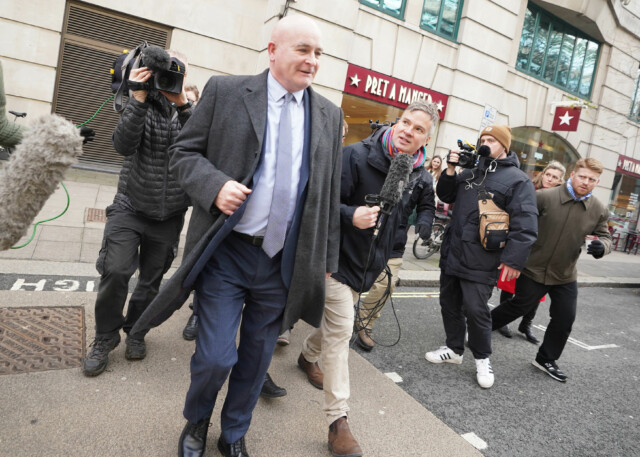
MINISTERS will introduce a new bill TODAY forcing rail and NHS workers to maintain minimum service levels on strike days.
The move comes as Britain suffers from a crippling winter of discontent, which has seen nurses and ambulance workers walk out of work leaving patients stranded.
RMT Chief Mick Lynch has claimed the government is “loosing the argument” by bringing in anti-strike laws
The new bill would force some trade union members in the NHS, rail, education, fire and rescue, border security, and nuclear decommissioning, to show up to work even if they voted to strike.
If they don’t then they face the sack.
The bill won’t affect strikes taking place today, as it will take time to pass through the Commons and could be challenged in the courts.
But it could have a massive impact on future industrial action.
Labour has already come out railing against the proposed law.
But Downing Street insists it’s necessary to “protect the public”.
Business Secretary Grant Shapps told Times Radio this morning: “I don’t think any civilised society should have a situation where we can’t get agreement to, for example, have an ambulance turn up on a strike day for the most serious of all types of ailments.”
Before striking late last year, members of the Royal College of Nursing voluntarily agreed to maintain a minimum level of service nationally.
But Mr Shapps said ambulance unions didn’t do the same, causing a huge risk to public safety.
“That’s the thing we want to avoid,” he told Sky News this morning.
“That’s why today I’ll introduce minimum safety levels and service levels for key public services to make sure that we don’t end up in a situation where people’s lives are at risk, while still respecting the right to withdraw labour and strike.”
Hitting back at the idea of minimum service levels, RMT Chief Mick Lynch said it proved ministers want to “close down” his union.
He called the bill a threat to sack union members.
It’s introduction today comes as ambulance staff are set to strike for the second time in a month tomorrow, after last-minute pay talks failed.
Thousands of 999 workers will walk out despite “progress” between unions and Health Secretary Steve Barclay yesterday.
He told reps that higher salaries could be unlocked with greater NHS efficiency and promised to consider backdating next year’s pay deal to this month.
Tomorrow’s action will see control room staff joining paramedics on the picket line with up to 25,000 Unison and GMB members staging a 24- hour walkout.
Thousands of patients could be denied emergency help or have appointments cancelled.
And hospital bosses fear this round of strikes — involving every mainland ambulance service except the East of England — will be worse than December’s action when nearly 5,000 ops and appointments were postponed.
Did you miss our previous article…
https://hellofaread.com/politics/boris-johnson-photoshopped-out-of-virgin-orbit-rocket-launch-tweet-in-awkward-gaffe/







